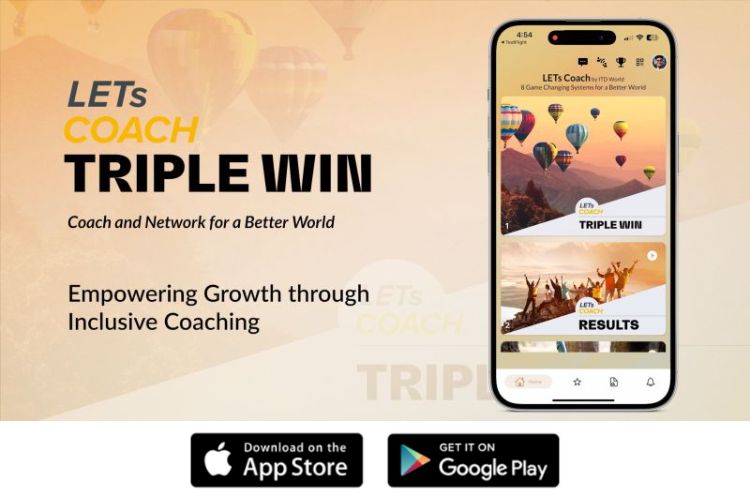Ever feel like you’re capable of more but aren’t sure how to get there? Do you have goals that seem just out of reach, or a desire for a more purpose-driven existence? You’re not alone.
Life coaching is a powerful partnership designed to close the gap between where you are and where you want to be. It’s the key to unlocking your potential, discovering fulfillment, and strategically visualizing the best life possible.
|
Author: Jonathan M. Pham |
Highlights
- Life coaching is a forward-looking, collaborative process where a coach acts as a partner and accountability guide to help one identify, articulate, and realize both personal and professional goals.
- The coaching journey follows a clear, result-oriented path: Foundation (defining purpose/vision), Strategy (setting goals and creating an action plan), and Execution (taking action and maintaining accountability). The coach’s main role is to ask thought-provoking questions – so that the coachee may arrive at their own answers.
- Life coaching is a rapidly growing field, backed by high client satisfaction and scientific data – which show that it significantly helps improve goal attainment, resilience, and overall well-being across various areas of life (e.g., career, health, relationships)
- Life coaching differs from therapy by focusing on future goal-setting and execution rather than addressing past mental health issues. It is suitable for anyone committed to personal growth and is offered in many specializations, like career, health, and executive coaching.
What is Life Coaching?
Life coaching is a collaborative process that allows one to identify and realize their personal and professional goals. A life coach acts as a dedicated partner – a personal trainer – whose role is to help you design and execute a winning strategy. They work with you to acquire clarity, focus your energy, and build momentum.
At its core, life coaching is about empowering one to tap into their innate potential and take control of the future. It’s a forward-looking practice through which one may better know what they want – and come up with a concrete plan to make it a reality.
Coaching can facilitate improvement in all areas of life, including:
- Career progression and satisfaction
- Physical health and mental well-being
- Emotional resilience and intelligence
- Spiritual growth and connection
- Social relationships and communication
- etc.
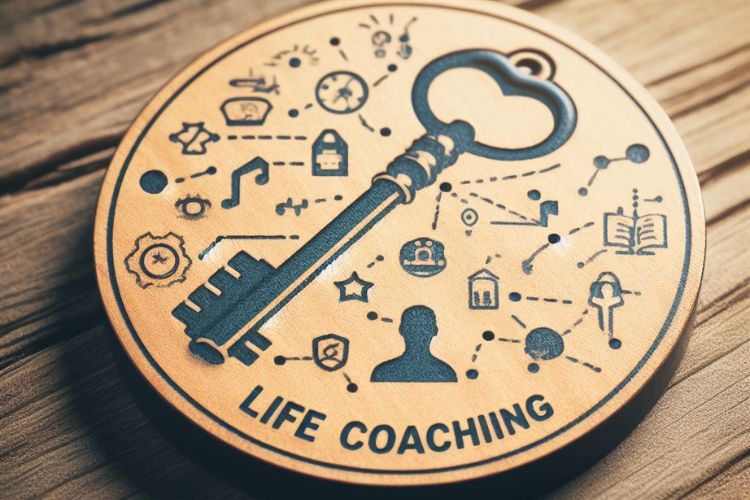
How Does Life Coaching Work?
Life coaching involves a structured, result-oriented process. The coach’s role isn’t to give answers, but to ask questions that allow the coachee to find their own. They act as a guide, a motivator, and an accountability partner.
The journey typically follows a path as follows:
- Foundation: Defining purpose & vision
Through active listening, insightful questions, and a deep belief in your potential for greatness, a coach helps you articulate your core life purpose. This is often distilled into a compelling, easy-to-remember sentence that acts as your personal mission statement. From there, you’ll come up with a vivid vision of what your life looks like when you’re living that purpose.
- Strategy: Setting goals & establishing a plan
With a clear vision in place, your coach then works with you to break it down into meaningful, achievable goals. Together, you will define a strategic action plan with clear steps, timelines, and milestones – so as to turn your grand vision into a manageable, day-to-day process.
- Execution: Taking action & ensuring accountability
This is where the real change happens. Your coach provides the support systems needed for you to succeed – including coaching tools, calendar reminders, frequent follow-ups, and serving as an accountability partner. This structure provides the push and encouragement needed to overcome obstacles and see your plans through to completion.
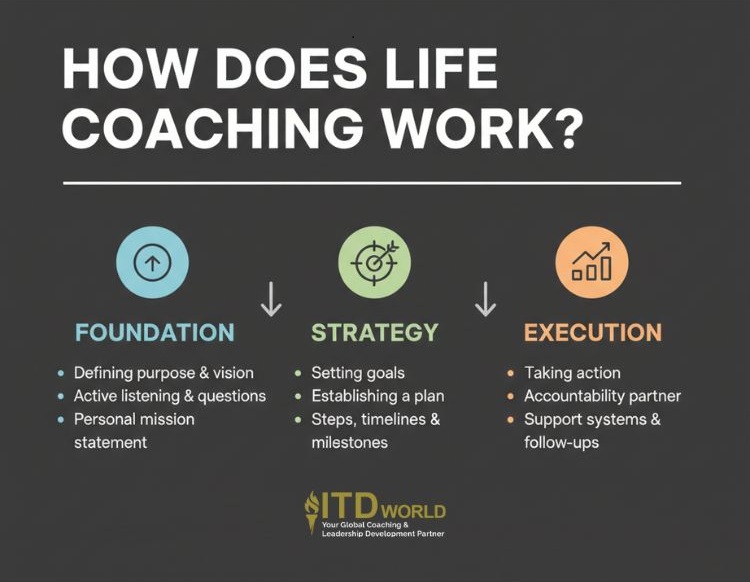
History of Life Coaching
While the desire for self-improvement is timeless, the formal practice of life coaching has its roots in the late 19th and early 20th centuries alongside the growth of psychology. That being said, modern life coaching truly began to take shape in the 1980s.
A key pioneer, Thomas Leonard, is widely considered the father of modern coaching. Originally a financial planner, he realized his clients needed more than just financial advice; they needed help designing and living fulfilling lives. This shifted the focus from fixing problems (therapy’s domain) to actively creating a desired future.
From these beginnings, coaching has now evolved into a respected profession dedicated to helping people maximize their potential.
Why is Life Coaching Important?
Life coaching is an amazing tool for realizing goals and living a happier, more fulfilling life. But you don’t have to take our word for it – the rapid growth and proven effectiveness of coaching are backed by solid data.
The global demand for coaching is surging for a reason: it works.
- 📈 Industry Growth: The International Coaching Federation (ICF) reported a 54% increase in professional coaches worldwide between 2019 and 2022, reaching over 109,200 certified coaches.
- ✅ Client Satisfaction: According to the ICF Global Coaching Study, 99% of clients are satisfied with their coaching experience, and 96% would repeat the process. This indicates an incredibly high perceived value and effectiveness.
- 🔬 Scientific Backing: A study in the Journal of Positive Psychology found that coaching significantly improves goal attainment, resilience, and well-being, especially when compared to self-help or no intervention.
The tangible benefits of working with a life coach include (but are not limited to):
- Success in one’s career and personal relationships.
- Greater self-confidence and self-awareness.
- Increased motivation and a stronger sense of purpose.
- Improved physical health and mental well-being.
- Enhanced stress management and decision-making skills.
- Better overall life management and balance.
- etc.
Life is a constant journey of growth and discovery; at times when we feel lost, a little nudge in terms of inspirational words may be exactly what is needed to find the right direction.
Who is Life Coaching for?
Life coaching isn’t just for executives or people in crisis; it’s for anyone who is committed to personal growth and wants to live life on their own terms.
It might be a perfect fit if you find yourself:
- Feeling stuck, uninspired, or unsure how to get back on track.
- Navigating a major life event (a career change, divorce, relocation).
- Having a big goal but struggling to make consistent progress.
- Longing for a more purposeful, meaningful, and fulfilling life.
- Wanting to overcome self-doubt and build unshakeable confidence.
- Struggling with work-life balance and time management.
- Simply wanting to optimize your life and achieve your full potential.
- etc.
If any of these resonate with you, a certified coach can provide the one-on-one support for you to set meaningful priorities and visualize a life that’s aligned with your core values.

Read more: Finding Happiness in Your Career – A How-to Guide
Types of Life Coaching
Life coaching is a broad field with many specializations. Finding an expert who focuses on your specific area of need is recommended to quickly accelerate your progress. Some common types include:
- Career Coaching: For navigating career transitions, promotions, and professional goals.
- Relationship Coaching: For building stronger relationships with partners, family, or colleagues.
- Family Coaching: For managing family dynamics and parenting challenges.
- Health & Wellness Coaching: For setting and achieving fitness, nutrition, and well-being goals.
- Spiritual Coaching: For overcoming personal blocks to find deeper meaning and fulfillment.
- Business & Executive Coaching: For leaders and entrepreneurs looking to grow their business and leadership skills.
- Transition Coaching: For support in dealing with major life changes like retirement or relocation.
- etc.
Life Coaches Are Not Therapists
Many people often mistake life coaching for a type of therapy – despite the similarities, these two are not the same thing. Therapists work one-on-one with clients to address specific mental health issues, while coaches focus on helping their clients achieve more general goals in various areas of life. However, some therapists may also offer life coaching services alongside traditional talk therapy sessions.
Here, we map out some basic differences between the two terms:
| Life Coaching | Therapy |
|---|---|
| A practical and supportive approach to goal achievement. | A more focused approach to treating mental health issues such as depression or anxiety. |
| Involves setting meaningful goals, creating a plan for reaching them, and implementing the plan with guidance from a certified coach. | Involves exploring past experiences and difficult emotions that may be preventing someone from living their best life. |
| Working one-on-one with a coach to gain clarity about your needs and desires, identify challenges in the way of achieving your goals, develop strategies for overcoming these challenges, and work toward becoming your best self. | Often includes talk therapy sessions where people can discuss their thoughts and feelings openly with a therapist to gain insight into their issues and learn new coping skills. |
How Do I Know if Life Coaching is Right for Me?
If you feel ready to take meaningful action toward greater happiness and fulfillment, coaching is likely a great fit. To be sure, try asking yourself these key questions:
- Am I ready to change? Coaching requires a genuine desire to step out of one’s comfort zone and adopt new habits and mindsets.
- Am I open to new perspectives? A coach will challenge your assumptions and offer feedback. As such, you must be willing to listen and consider different ways of thinking – especially those that may contradict your current viewpoints.
- Am I willing to do the work? Your progress depends on the action you take between sessions. Are you ready to commit time and energy to your own growth?
If you answered “yes” to these questions, you are in the perfect position to benefit from life coaching!
What to Look for in a Life Coach
Choosing the right coach is crucial for a successful partnership. Here are a few key factors to consider:
- Credentials & certifications: Ensure they are certified by a reputable global organization like the International Coaching Federation (ICF) or the Association of Coaching (AC). This guarantees they have met rigorous training and ethical standards.
- Relevant experience: Try to look for one who has experience working with clients facing similar challenges or goals as you.
- Coaching style: Think about their approach. Are they more directive and structured, or more collaborative and intuitive? Find a style that resonates with you.
- Chemistry & rapport: The most important factor. You should feel comfortable, respected, and understood. A strong connection is essential for an open and trusting relationship.
Read more: 8 Effective Coaching Skills for Leaders & Managers
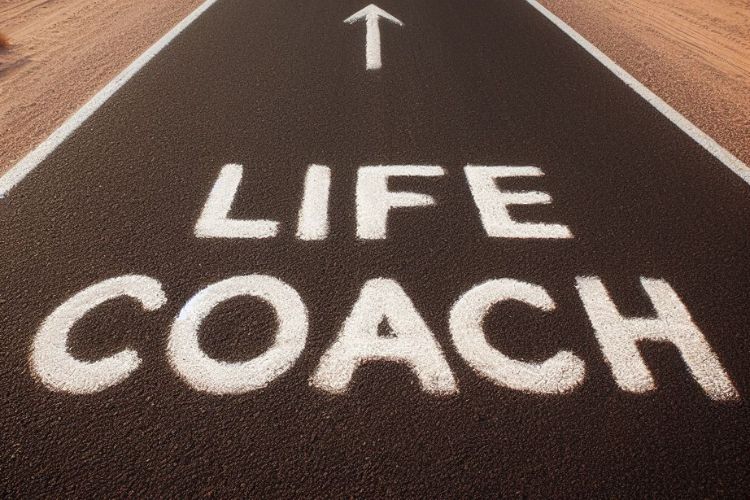
Tips for Finding the Right Life Coaches
-
Do your due diligence
Start by researching certified coaches online. Read their websites, check out their testimonials, and look for reviews. As mentioned above, pay close attention to their qualifications and areas of specialty.
-
Schedule “discovery calls”
Most coaches offer a free introductory call (often called a discovery or chemistry call). Shortlist 2-3 potential candidates and schedule these consultations. This is your chance to “interview” them and see if they are a good fit.
-
Trust your intuition
During these calls, pay attention to how you feel. Do you feel energized and understood? Or do you feel a sense of doubt? This is someone who will guide you on a significant journey, so it’s essential that you trust your gut. Don’t be afraid to move on if it doesn’t feel right.
Read more: 10 Characteristics of a Good Coach
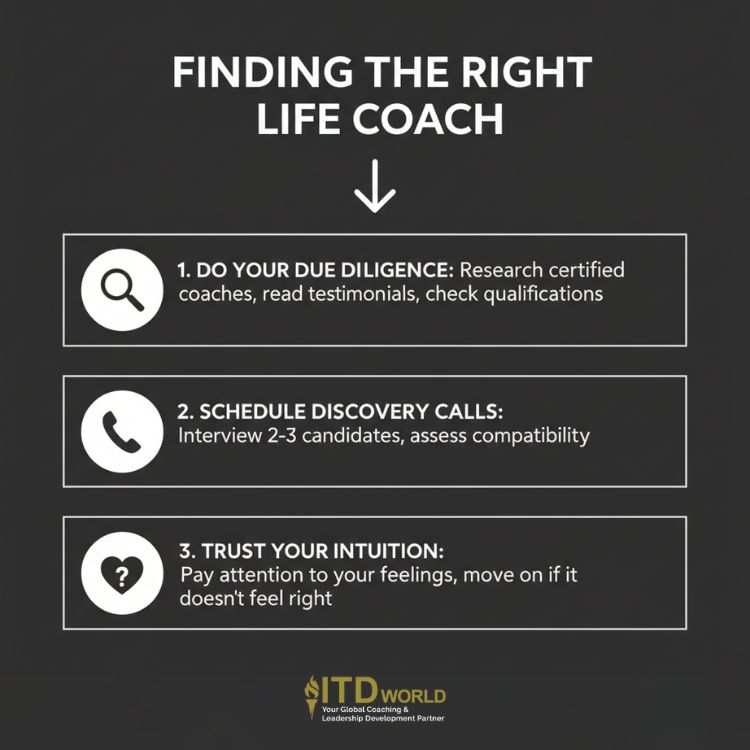
Making the Most of Your Coaching Experience
Once you’ve chosen a coach, your active participation is key to success. Remember these principles:
- Be open and honest: Coaching is a safe, confidential space. The more transparent you are about your challenges, fears, and aspirations, the better the coach can assist you.
- Take ownership of your journey: Your coach is your guide and partner, and yet you are the one in the driver’s seat. Take responsibility for your actions and decisions. The breakthroughs belong to you.
- Commit to action: The real growth happens between coaching sessions. Dedicate yourself to completing the action steps you agree upon. Consistent effort is what builds momentum and leads to lasting change.
How Much Does Life Coaching Cost?
The cost of life coaching may vary widely, typically ranging from $100 to over $500 per session, depending on several factors:
- The coach’s experience, credentials, and reputation.
- Their area of specialization (e.g., executive coaching is typically more expensive).
- The length and frequency of sessions.
Many coaches offer packages of multiple sessions at a discounted rate, which is often the most effective approach.
Instead of viewing it as a cost, consider it an investment in yourself. The clarity, confidence, and goal achievement that come from quality coaching can pay dividends in all areas of your life for years to come!
Life Coaching Case Study – Sally’s Story
Sally is a technically brilliant but introverted engineer in her late 30s – who was struggling with low energy, poor health, and a lack of visibility at work. Her physical fatigue, compounded by a poor diet and lack of exercise, was mirrored by her emotional state, where she felt dissatisfied with her career and lacked the confidence to speak up, leading to her abilities being overlooked. A conversation with a friend, Alice, prompted Sally to acknowledge her unhappiness, including her impulsive spending habits, and ultimately seek out a life coach to make a change.
The coach helped Sally use the Elements of Life Synergy (ELS) model to identify key areas needing improvement: Mind, Body, Career, and Financial. Through coaching, Sally developed a life purpose statement centered on using technology for positive change, which inspired her to take massive action. This included embedding better health habits (diet, sleep, exercise) and taking an online course to improve her speaking and presentation skills to boost her confidence and visibility. She also worked with a financial planner to improve her financial discipline.
As a result of these changes, Sally became an influential, high-energy leader at work, successfully leading projects, filing patents, and increasing her income, which allows her to save and enjoy well-deserved holidays. She overcame her timidity, becoming a confident and happy individual who is now on track to achieve her goal of becoming the R&D Director.
Learn more about Sally’s story here: https://itdworld.com/gcce-life-coaching-for-holistic-happiness/
Read more: Life Coaching Quotes – Wisdom for the Journey

How May ITD World’s Team of Experts Help?
At ITD World, we believe that everyone has the power to change their lives for the better. For more than 35 years, we have worked with leaders from various multinational organizations – many of whom have been able to achieve incredible success through our powerful executive coaching, training, and consulting services.
Whether you are looking to improve your communication skills, boost your confidence while presenting, or learn how to effectively manage projects and budgets, ITD World is here to help! Our team of experts will work closely with you to understand your unique challenges and goals, and provide the tools and support necessary for you to realize your full potential. Aside, for those who would like to pursue a professional development pathway, we offer a multitude of professional certification programs designed to equip you with the skills & mindset necessary to reach greater heights in life.
Ready to take charge of your future? Contact ITD World today for more information!
Other resources you might be interested in:
- Self-coaching: A Practical Guide to Being Your Own Coach
- Performance Coaching: Unlock People’s Greatness
- 7 Types of Coaching in the Workplace: A Practical Guide
- 10 Common Coaching Challenges: Navigating Difficult Scenarios
- Mentoring: A Win-win Relationship


